Ökonometrische Methoden für wirtschaftliche Prognosen und Simulationen
Der Forschungsschwerpunkt der Forschungsgruppe liegt in der Entwicklung ökonometrischer Methoden für Kurzfristprognosen (Reduzierte-Form-Modelle), für Regionalisierung und für Langfristprojektionen sowie für strukturelle Prognose- und Simulationsmodelle (DSGE-Modelle). Ferner erstellt sie ökonometrische Hintergrundanalysen für die Prognosetätigkeit der Forschungsgruppe Makroökonomische Analysen und Prognosen. Im Rahmen von Drittmittelprojekten wurden verschiedene makroökonomische Modelle, bspw. für die Volkswagen Financial Services AG oder im Rahmen von GIZ-Projekten für die Wirtschaftsministerien in Kirgistan und Tadschikistan sowie das Institut für makroökonomische Prognosen und Forschung (IFMR) in Usbekistan entwickelt.
IWH-Datenprojekt: IWH Real-time Database
Forschungscluster
Wirtschaftliche Dynamik und StabilitätIhr Kontakt

- Abteilung Makroökonomik
PROJEKTE
07.2022 ‐ 12.2026
Evaluierung des InvKG und des Bundesprogrammes STARK
Bundesministerium für Wirtschaft und Klimaschutz (BMWK)
Im Auftrag des Bundesministeriums für Wirtschaft und Klimaschutz evaluieren das IWH und das RWI die Verwendung der rund 40 Milliarden Euro, mit denen der Bund die Kohleausstiegsregionen unterstützt.
12.2024 ‐ 02.2026
Macroeconomic Modelling for Energy Investments in Vietnam
Deutsche Gesellschaft für Internationale Zusammenarbeit (GIZ) GmbH
08.2024 ‐ 03.2025
Strengthening Public Financial Management in Vietnam
Deutsche Gesellschaft für Internationale Zusammenarbeit (GIZ) GmbH
01.2023 ‐ 12.2023
Frühzeitige Ermittlung stabiler Ergebnisse zum Bruttoinlandsprodukt bzw. realen Wirtschaftswachstum und der Bruttowertschöpfung auf Länderebene
Landesbetrieb Information und Technik Nordrhein-Westfalen
Das Projekt prüft, ob die Genauigkeit der ersten Schätzung der Bruttowertschöpfung und des Bruttoinlandsprodukts für die Bundesländer erhöht und damit das Ausmaß der nachfolgenden Revisionen reduziert werden kann.
01.2018 ‐ 12.2023
EuropeAid (EU-Rahmenvertrag)
Europäische Kommission
05.2020 ‐ 09.2023
ENTRANCES: Energy Transitions from Coal and Carbon: Effects on Societies
Europäische Kommission
Ziel von ENTRANCES ist es, die Folgen des Kohleausstiegs in Europa zu untersuchen. Wie verändert der Kohleausstieg die Gesellschaft – und wie kann Politik darauf reagieren?
This project has received funding from the European Union’s Horizon 2020 research and innovation programme under grant agreement No 883947.
10.2019 ‐ 01.2023
An Klimawandel angepasste Wirtschaftsentwicklung
Deutsche Gesellschaft für Internationale Zusammenarbeit (GIZ) GmbH
Der Klimawandel wirkt sich stark auf das Wirtschaftswachstum und die Entwicklung eines Landes aus. Das erhöht den Bedarf an verlässlichen und realisierbaren Ansätzen, mit denen die Auswirkungen von Klimarisiken und potenzielle Anpassungsszenarien bewertet werden können. Die politischen Entscheidungsträger*innen in den Planungs- und Wirtschaftsministerien benötigen fundierte Prognosen, um entsprechende wirtschaftspolitische Instrumente zu konzipieren, zu finanzieren und aktiv gegenzusteuern. In den Pilotländern Kasachstan, Vietnam und Georgien werden Klimarisiken bei der makroökonomischen Modellierung berücksichtigt. Die Ergebnisse werden so in den Politikprozess integriert, dass angepasste Wirtschaftsplanungen entstehen können. Das IWH-Team ist verantwortlich für die makroökonomische Modellierung in Vietnam.
07.2016 ‐ 12.2018
Klimaschutz und Kohleausstieg: Politische Strategien und Maßnahmen bis 2030 und darüber hinaus
Umweltbundesamt (UBA)
01.2017 ‐ 12.2017
Unterstützung einer nachhaltigen Wirtschaftsentwicklung in ausgewählten Regionen Usbekistans
Deutsche Gesellschaft für Internationale Zusammenarbeit (GIZ) GmbH
01.2017 ‐ 12.2017
Short-term Macroeconomic Forecasting Model in Ministry of Economic Development and Trade of Ukraine
Deutsche Gesellschaft für Internationale Zusammenarbeit (GIZ) GmbH
01.2016 ‐ 12.2017
Entwicklung eines analytischen Tools basierend auf einer Input-Output-Tabelle
Deutsche Gesellschaft für Internationale Zusammenarbeit (GIZ) GmbH
Das Ziel des Projektes war die Entwicklung eines Exceltools zur Wirkungsanalyse von Politikmaßnahmen in Tadschikistan basierend auf dem statischen Input-Output-Ansatz.
11.2015 ‐ 12.2016
Beschäftigung und Entwicklung in der Republik Usbekistan
Deutsche Gesellschaft für Internationale Zusammenarbeit (GIZ) GmbH
Förderung einer nachhaltigen wirtschaftlichen Entwicklung in ausgewählten Regionen Usbekistans
05.2016 ‐ 05.2016
Rahmenbedingungen und Finanzierungsmöglichkeiten für die Entwicklung des Privatsektors in Tadschikistan
Deutsche Gesellschaft für Internationale Zusammenarbeit (GIZ) GmbH
02.2016 ‐ 04.2016
Makroökonomische Reformen und umwelt- und sozialverträgliches Wachstum in Vietnam
Deutsche Gesellschaft für Internationale Zusammenarbeit (GIZ) GmbH
10.2015 ‐ 03.2016
Improved Evidence-based Policy Making - GIZ Tadschikistan
Deutsche Gesellschaft für Internationale Zusammenarbeit (GIZ) GmbH
Referierte Publikationen
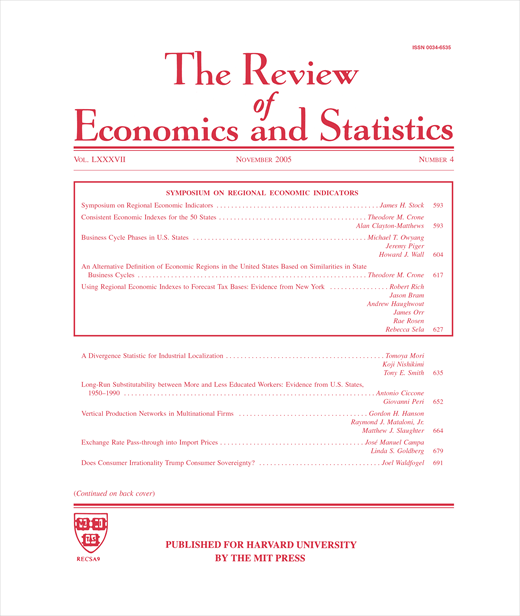
Sticky Prices or Sticky Wages? An Equivalence Result
in: Review of Economics and Statistics, im Erscheinen
Abstract
<p>We show an equivalence result in the standard representative agent New Keynesian model after demand, wage markup and correlated price markup and TFP shocks: assuming sticky prices and flexible wages yields identical allocations for GDP, consumption, labor, inflation and interest rates to the opposite case- flexible prices and sticky wages. This equivalence result arises if the price and wage Phillips curves' slopes are identical and generalizes to any pair of price and wage Phillips curve slopes such that their sum and product are identical. Nevertheless, the cyclical implications for profits and wages are substantially different. We discuss how the equivalence breaks when these factor-distributional implications matter for aggregate allocations, e.g. in New Keynesian models with heterogeneous agents, endogenous firm entry, and non-constant returns to scale in production. Lastly, we point to an econometric identification problem raised by our equivalence result and discuss possible solutions thereof.</p>

Transparency and Forecasting: The Impact of Conditioning Assumptions on Forecast Accuracy
in: Applied Economic Letters, im Erscheinen
Abstract
<p>This study investigates the impact of inaccurate assumptions on economic forecast precision. We construct a new dataset comprising an unbalanced panel of annual German GDP forecasts from various institutions, taking into account their underlying assumptions. We explicitly control for different forecast horizons to reflect the information available at the time of release. Our analysis reveals that approximately 75% of the variation in squared forecast errors can be attributed to the variation in squared errors of the initial assumptions. This finding emphasizes the importance of accurate assumptions in economic forecasting and suggests that forecasters should transparently disclose their assumptions to enhance the usefulness of their forecasts in shaping effective policy recommendations.</p>
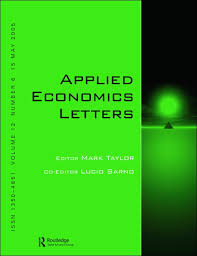
The Effects of the Iberian Exception Mechanism on Wholesale Electricity Prices and Consumer Inflation: A Synthetic-controls Approach
in: Applied Economic Letters, im Erscheinen
Abstract
<p>This study employs synthetic control methods to estimate the effect of the Iberian exception mechanism on wholesale electricity prices and consumer inflation, for both Spain and Portugal. We find that the intervention led to an average reduction of approximately 40% in the spot price of electricity between July 2022 and June 2023 in both Spain and Portugal. Regarding overall inflation, we observe notable differences between the two countries. In Spain, the intervention has an immediate effect, and results in an average decrease of 3.5 percentage points over the twelve months under consideration. In Portugal, however, the impact is small and generally close to zero. Different electricity market structures in each country are a plausible explanation.</p>

Step by Step ‒ A Quarterly Evaluation of EU Commission's GDP Forecasts
in: Journal of Forecasting, Nr. 3, 2025
Abstract
<p>The European Commission’s growth forecasts play a crucial role in shaping policies and provide a benchmark for many (national) forecasters. The annual forecasts are built on quarterly estimates, which do not receive much attention and are hardly known. Therefore, this paper provides a comprehensive analysis of multi-period ahead quarterly GDP growth forecasts for the European Union (EU), euro area, and several EU member states with respect to first-release and current-release data. Forecast revisions and forecast errors are analyzed, and the results show that the forecasts are not systematically biased. However, GDP forecasts for several member states tend to be overestimated at short-time horizons. Furthermore, the final forecast revision in the current quarter is generally downward biased for almost all countries. Overall, the differences in mean forecast errors are minor when using real-time data or pseudo-real-time data and these differences do not significantly impact the overall assessment of the forecasts’ quality. Additionally, the forecast performance varies across countries, with smaller countries and Central and Eastern European countries (CEECs) experiencing larger forecast errors. The paper provides evidence that there is still potential for improvement in forecasting techniques both for nowcasts but also forecasts up to eight quarters ahead. In the latter case, the performance of the mean forecast tends to be superior for many countries.</p>
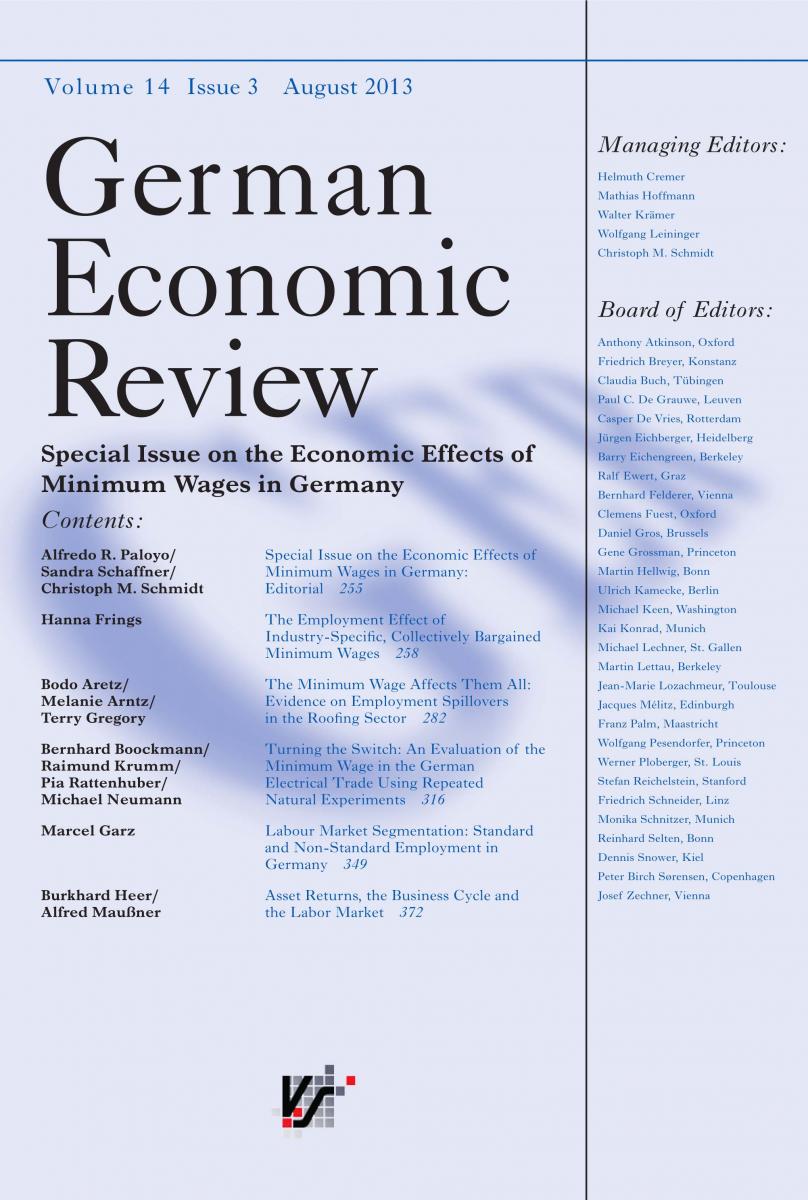
Regional Industrial Effects in Germany from a Potential Gas Deficit
in: German Economic Review, Nr. 3, 2024
Abstract
<p>We estimate potential regional industrial effects in case of a threatening gas deficit. For Germany, the reduction leads to a potential decrease in industrial value added by 1.6 %. The heterogeneity across German states is remarkable, ranging from 2.2 % for Rhineland-Palatinate to 0.7 % for Hamburg. We emphasize the need for regional input-output tables to conduct economic analysis on a sub-national level, particularly when regional industrial structures are heterogeneous. The approximation with national figures can lead to results that differ both in magnitude and relative regional exposure. Our findings highlight that more accurate policy guidance can be achieved by improving the regional database.</p>
Arbeitspapiere
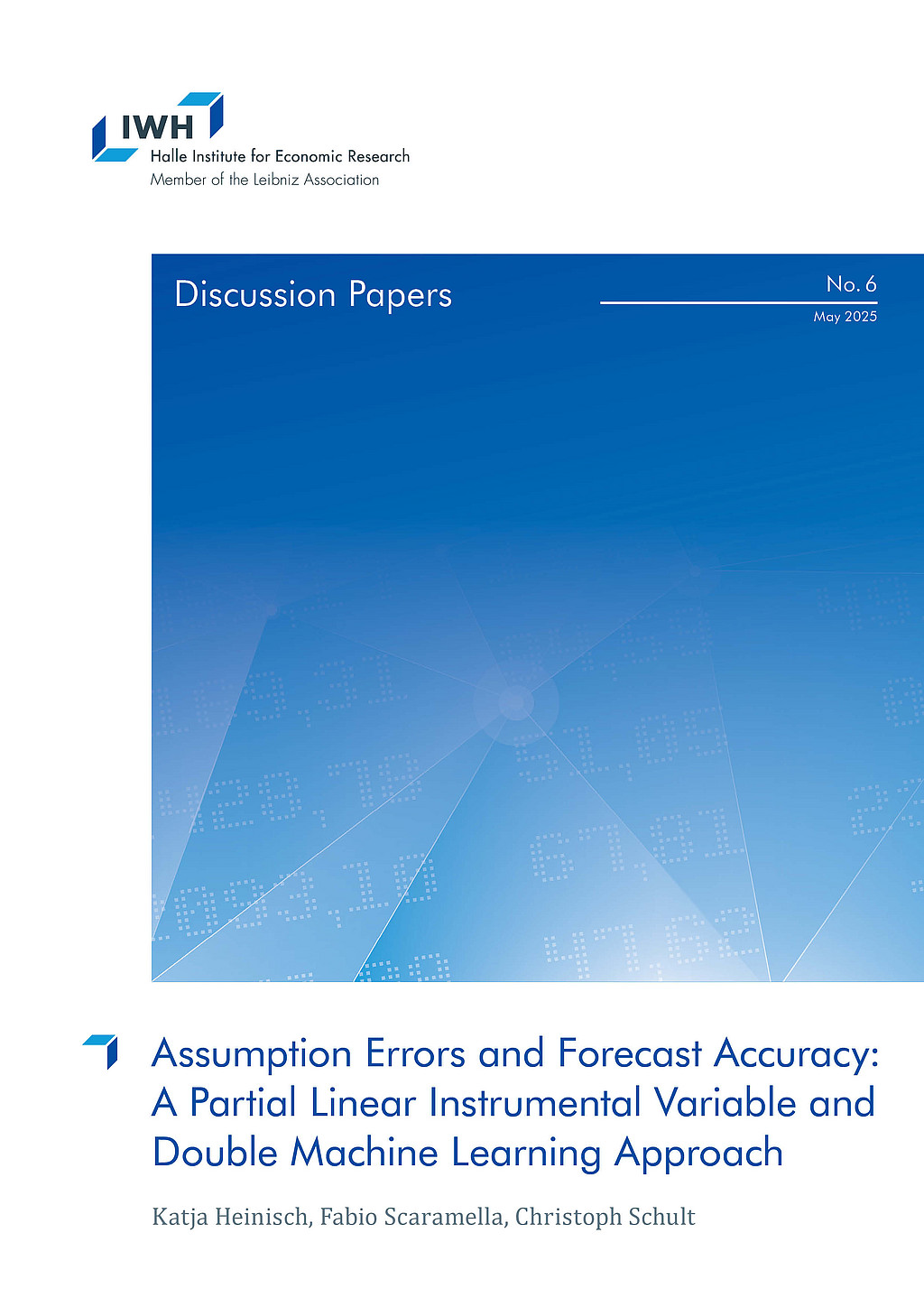
Assumption Errors and Forecast Accuracy: A Partial Linear Instrumental Variable and Double Machine Learning Approach
in: IWH Discussion Papers, Nr. 6, 2025
Abstract
<p>Accurate macroeconomic forecasts are essential for effective policy decisions, yet their precision depends on the accuracy of the underlying assumptions. This paper examines the extent to which assumption errors affect forecast accuracy, introducing the average squared assumption error (ASAE) as a valid instrument to address endogeneity. Using double/debiased machine learning (DML) techniques and partial linear instrumental variable (PLIV) models, we analyze GDP growth forecasts for Germany, conditioning on key exogenous variables such as oil price, exchange rate, and world trade. We find that traditional ordinary least squares (OLS) techniques systematically underestimate the influence of assumption errors, particularly with respect to world trade, while DML effectively mitigates endogeneity, reduces multicollinearity, and captures nonlinearities in the data. However, the effect of oil price assumption errors on GDP forecast errors remains ambiguous. These results underscore the importance of advanced econometric tools to improve the evaluation of macroeconomic forecasts.</p>

Banks and the State-Dependent Effects of Monetary Policy
in: NBER Working Papers, Nr. 33523, 2025
Abstract
<p>We show that the response of banks’ net interest margin (NIM) to monetary policy shocks is state dependent. Following a period of low (high) Federal Funds rates, a contractionary monetary policy shock leads to an increase (decrease) in NIM. Aggregate economic activity exhibits a similar state-dependent pattern. To explain these dynamics, we develop a banking model in which social interactions influence households’ attentiveness to deposit interest rates. We embed that framework within a nonlinear heterogeneous-agent NK model. The estimated model accounts well quantitatively for our key empirical findings.</p>
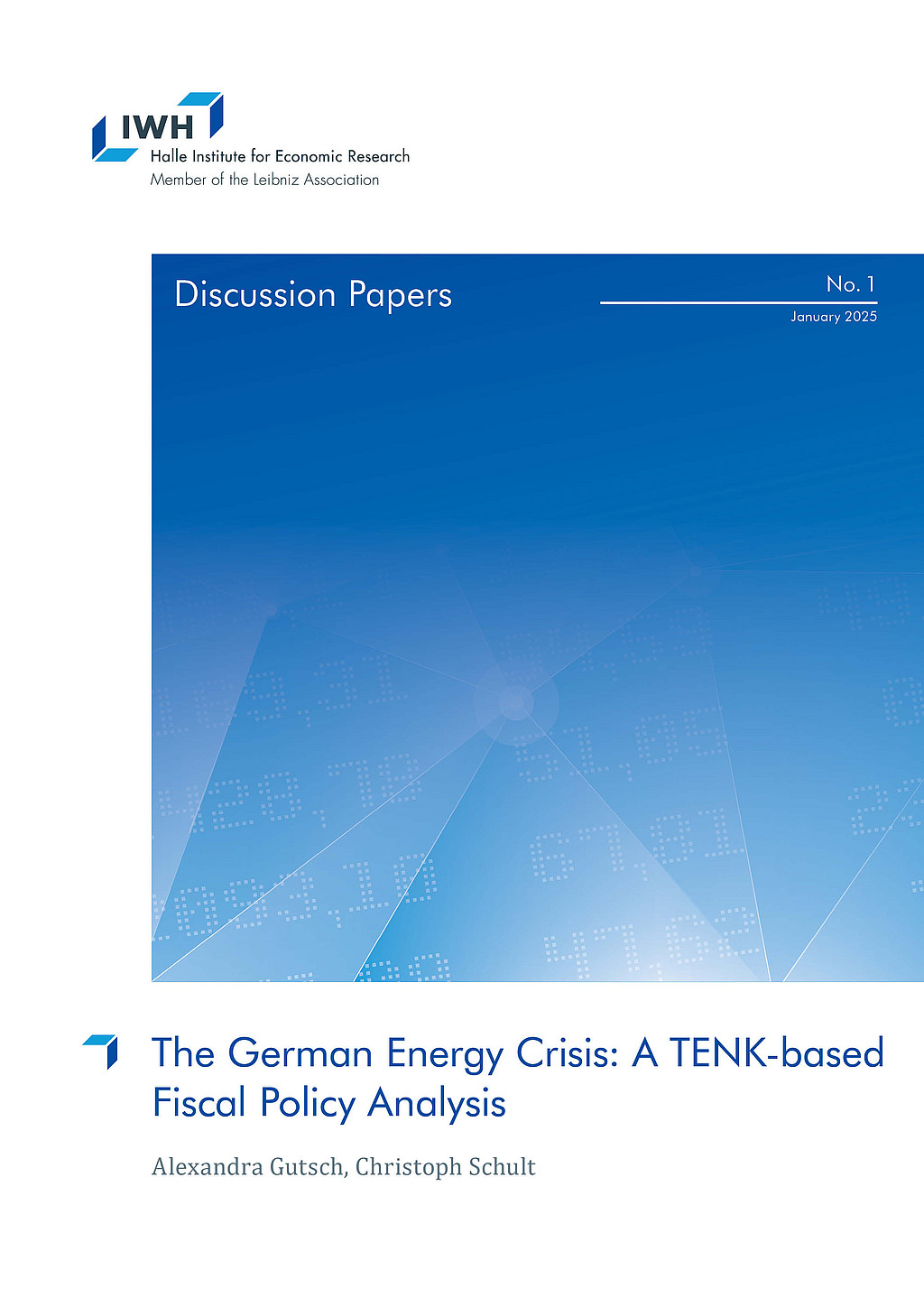
The German Energy Crisis: A TENK-based Fiscal Policy Analysis
in: IWH Discussion Papers, Nr. 1, 2025
Abstract
<p>We study the aggregate, distributional, and welfare effects of fiscal policy responses to Germany’s energy crisis using a novel Ten-Agents New-Keynesian (TENK) model. The energy crisis, compounded by the COVID-19 pandemic, led to sharp increases in energy prices, inflation, and significant consumption disparities across households. Our model, calibrated to Germany’s income and consumption distribution, evaluates key policy interventions, including untargeted and targeted transfers, a value-added tax cut, energy tax reductions, and an energy cost brake. We find that untargeted transfers had the largest short-term aggregate impact, while targeted transfers were most cost-effective in supporting lower-income households. Other instruments, as the prominent energy cost brake, yielded comparably limited welfare gains. These results highlight the importance of targeted fiscal measures in addressing distributional effects and stabilizing consumption during economic crises.</p>
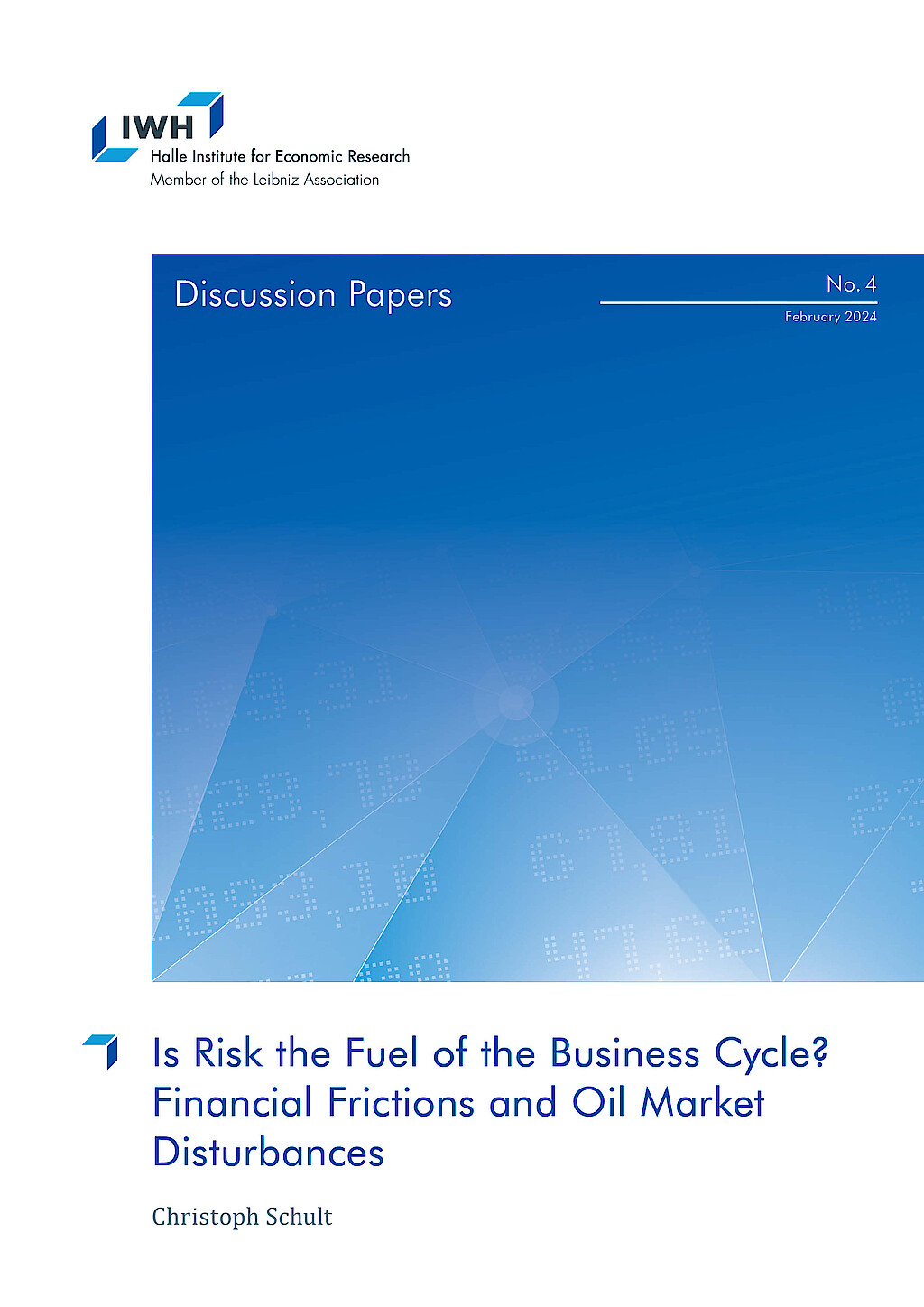
Is Risk the Fuel of the Business Cycle? Financial Frictions and Oil Market Disturbances
in: IWH Discussion Papers, Nr. 4, 2024
Abstract
I estimate a dynamic stochastic general equilibrium (DSGE) model for the United States that incorporates oil market shocks and risk shocks working through credit market frictions. The findings of this analysis indicate that risk shocks play a crucial role during the Great Recession and the Dot-Com bubble but not during other economic downturns. Credit market frictions do not amplify persistent oil market shocks. This result holds as long as entry and exit rates of entrepreneurs are independent of the business cycle.
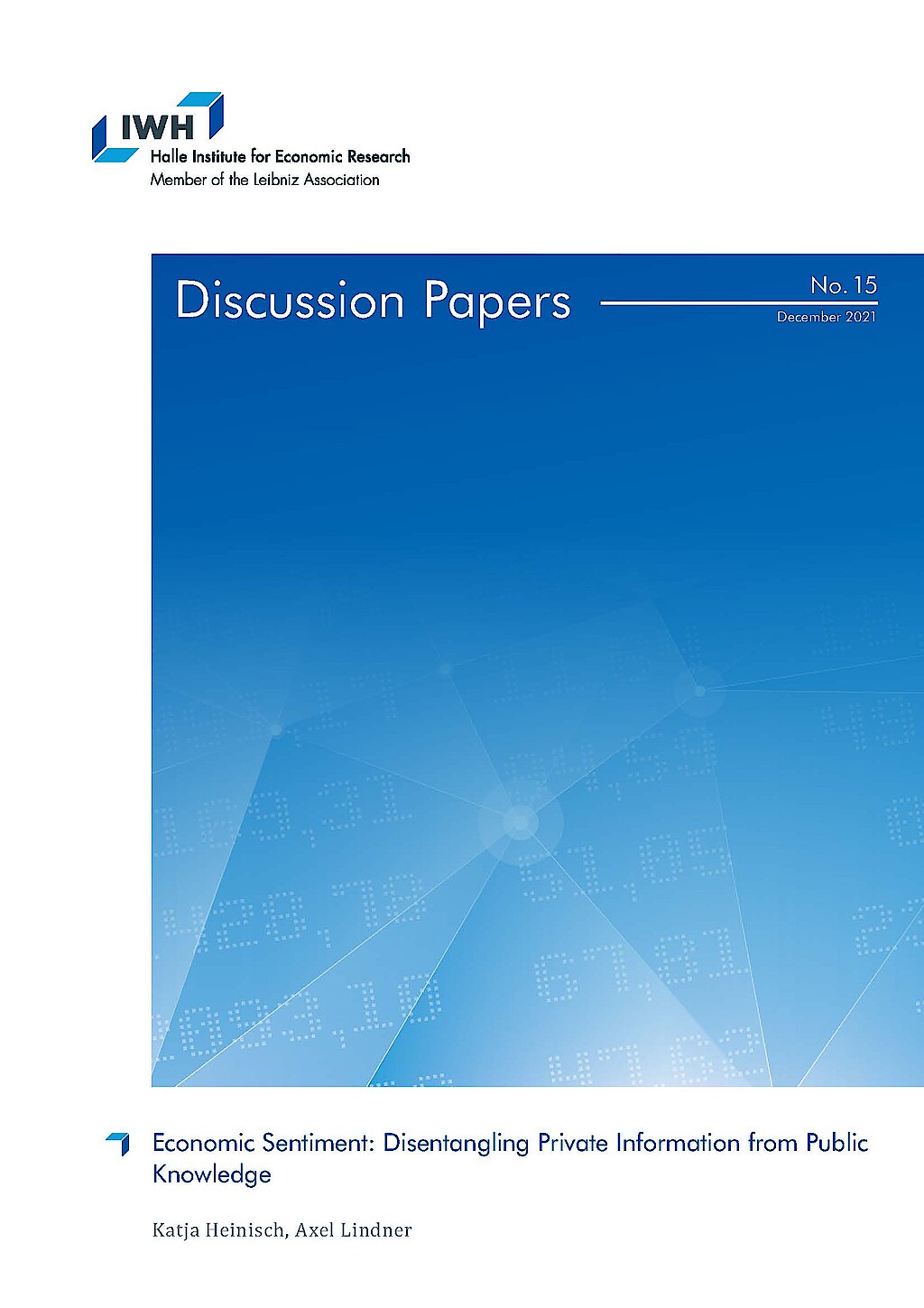
Economic Sentiment: Disentangling Private Information from Public Knowledge
in: IWH Discussion Papers, Nr. 15, 2021
Abstract
This paper addresses a general problem with the use of surveys as source of information about the state of an economy: Answers to surveys are highly dependent on information that is publicly available, while only additional information that is not already publicly known has the potential to improve a professional forecast. We propose a simple procedure to disentangle the private information of agents from knowledge that is already publicly known for surveys that ask for general as well as for private prospects. Our results reveal the potential of our proposed technique for the usage of European Commissions‘ consumer surveys for economic forecasting for Germany.


























